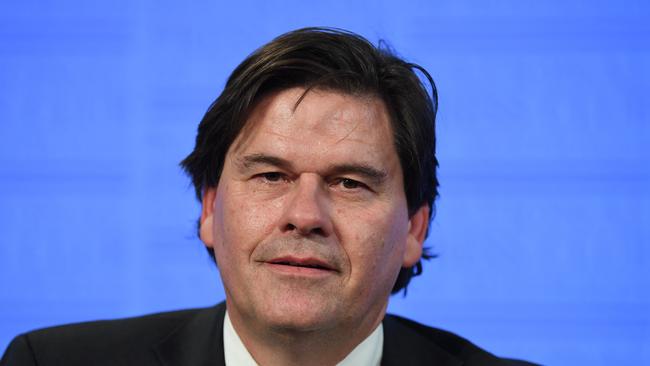Coronavirus: Don’t take away JobKeeper payments, say employers
Employers have rejected calls to move workers off JobKeeper early if their business recovers sooner than expected.

Employers have rejected calls to move workers off JobKeeper early if their business recovers sooner than expected, as momentum grows within the Coalition to make the $130bn scheme more targeted towards the worst-affected industries.
Ahead of Treasury’s review of the program next month, the Australian Industry Group, which represents more than 60,000 businesses and one million staff, called for a suite of reforms to improve its efficiency and fairness.
Ai Group chief executive Innes Willox said businesses that were part of larger groups should have to meet only the 30 per cent turnover reduction threshold, instead of 50 per cent, and suggested tax commissioner Chris Jordan be able to use his discretion to extend the $1500 fortnightly payments to businesses with lower margins.
“Consideration should also be given by the government to extend the period of the scheme, should conditions warrant it,” Mr Willox said. “However, employers would not want to see any change in the minimum period over which the JobKeeper scheme will be paid or a phasing down in the amount of the JobKeeper payment. Changes of this sort would dramatically undermine business plans that have already been put in place.”
The JobKeeper program is due to run from March 30 to September 27. Once a business becomes eligible for JobKeeper, it remains eligible for the duration of the program and continues to receive payments regardless of turnover.
Council of Small Business Organisations Australia chief executive Peter Strong agreed the six-month deadline was critical for business confidence and certainty but said calls from some Coalition MPs to phase out payments for recovered businesses before the end date were “reasonable” on paper.
Mr Strong did not believe that would receive Senate support and instead suggested businesses be given the power to opt out of the scheme. “Most business people don’t want welfare,’’ he said.
“Can I voluntarily say: ‘I’ve reached this stage where we’re back to normal, I’m going to reject JobKeeper and run my business as normal?’ Maybe the Senate can look at this.’’
Centre Alliance senator Stirling Griff, who with colleague Rex Patrick controls two crucial Senate crossbench votes, warned against giving different sectors different JobKeeper end dates or amounts but thought some industries could receive extra support through other programs.
“There certainly could be an argument for other forms of support to help particular industries kickstart themselves but JobKeeper should run its course for everybody at the same time,” Senator Griff said.
Labor will try on Thursday to open the JobKeeper scheme to universities and companies fully owned by foreign governments but needs One Nation’s support to have its disallowance motion agreed to. The move is largely aimed at thousands of aviation workers employed by Dnata, which provides catering and baggage handling at airports across Australia and is owned by the Emirates Group. Companies owned by foreign governments and their agencies are not eligible for the JobKeeper scheme.
Manager of opposition business Tony Burke questioned why an 18-year-old living at home and working one shift a week at McDonald’s could receive the payments but a full-time Australian working for Dnata did not qualify.




To join the conversation, please log in. Don't have an account? Register
Join the conversation, you are commenting as Logout